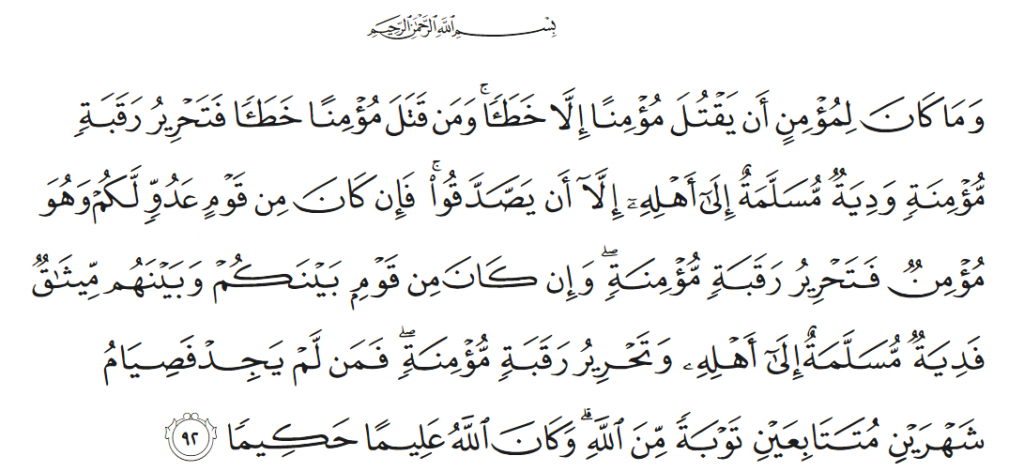Contact
Get In Touch

Author
Abdul Azeem
LLB (Hons) LLM
Murder in Pakistan
Homicide, Murder (which is known as dafa 302), and Manslaughter are all addressed in the Pakistans Penal Code as the killing of a person. The act of murder (when it’s a crime) is considered to be the most serious crime someone can commit. In Pakistan, an individual convicted of murder may be sentenced to serve life imprisonment (25 years in prison) or may even be sentenced to death.
There are different kinds of ways that people can commit murder (dafa 302), and not all of them are crimes (for example, in self defence). This article will explore the different types of murders in Pakistan (dafa 302), and what options a complainant or a falsely accused individual has in the trial. You can contact our Criminal Lawyers in Pakistan at any time to discuss your case.


The types of Murder in Pakistan
- Murder (dafa 302)
- Refers to an act of intentionally (premeditated) and unlawfully murdering the victim, either unarmed or with a weapon (referred to as Qatl i amd).
- First-degree murder, the murder is planned (i.e., with a criminal conspiracy). Even if a person other than the person whose death was intended is killed, it would be classed under PPC Section 301 and defined in PPC Section 301.
- Murdering someone under duress would be considered “Ikrah-i-tam” (PPC Section DF 303a)
- If someone commits murder under threat of the culprit (vicarious liability), this would be considered as “ikrah-i-naqis” (PPC Section dafa 303b)
- Assassination is the murder of a targeted victim (i.e., a prominent individual like a celebrity or politician).
- Genocide is the collective murder of a group of individuals of a specific persuasion (indiscriminate killing of a mass of people would be referred to as a “massacre”).
- Anyone who intends to commit murder and fails to execute the murder would be charged under PPC Section DAFA 324.
- Refers to an act of intentionally (premeditated) and unlawfully murdering the victim, either unarmed or with a weapon (referred to as Qatl i amd).
- Manslaughter
- This kind of murder refers to an intentional act of committing harm but not murder (Qatl shibh i am, PPC Section dafa 315) or done by doing an unlawful act (Qatl bis sabab).
- Second-degree murder: the killing was not planned and was done in the “heat of the moment” or “in passion.”.
- If it was an accidental death (with no intention to commit murder), then it would be considered Qatl-i-khata, which falls under PPC Section dafa 318
- Homicide
- This is when an individual is murdered as an act of self-defense or killed during a genuine police encounter.
- Inculpable homicide is the act of taking someone’s life within the limits of the law (for example, in self-defense), for which there will be no punishment.
- Culpable homicide is the act of killing someone unlawfully, for which there will be a punishment.
- This is when an individual is murdered as an act of self-defense or killed during a genuine police encounter.
- Infanticide
- This refers to the killing of a child by the parent. In Pakistan, this is mainly due to abortions.
- Suicide
- Suicide is the act of killing one’s self.
In order to unearth as to whether one met natural or unnatural death probe must be made as no one on earth has a right to take away life of another except in accordance with law. In case when offence of murder has been committed in mysterious manner and evidence is destroyed and dead body buried in haste, under the social norms/pressure and designs of the killer(s), if circumstances so exist to reflect that death had occurred other than natural way, in order to make a probe, if it is necessary for the sake of justice, then even disinterment should be ordered. Mere fact that dead body had already been buried or family of the deceased is not consenting for disinterment is not a good ground to deny to do justice.
PLD 2020 Lahore 394
Premeditated
The legal term “premeditated” (also referred to as “malice aforethought”) is used to describe the planning and intention element required in some crimes. Premeditation, or malice aforethought, is also a singular element necessary for a charge of aggravated or first-degree murder.
In Pakistan, intent not only refers to an individual’s pre-planning to commit homicide but can be inferred when the perpetrator acts with no respect, regard, or care for human life and/or with gross recklessness.
Oral provocation whatsoever of nature is not relevant in respect of offence of murder which is subject to Hadd.
1996 PLD 1 SC
Homicide in Pakistan
Often the terms “murder” (dafa 302) and “homicide” are sometimes used interchangeably, but there is a stark difference between the two. Homicide is defined as the killing of one person by another person.
Homicide includes killing by accident, in the spur of the moment (manslaughter), or in self-defense. Murder (DAFA 302) is a form of criminal homicide in which the perpetrator had the intent to kill another person.
Accused involved in the murder case on account of joint extra judicial confession would be entitled to ACQUITTAL
2012 PCrLJ 258
Manslaughter in Pakistan
Manslaughter is referred to as second-degree murder and can be broken down into 2 sub-categories: voluntary and involuntary.
- Involuntary Manslaughter: Causing death whilst engaged in a reckless or unlawful activity that is not considered a crime may be considered an act of involuntary manslaughter.
- Voluntary ManslaughterKilling someone in the heat of passion or during the commission of a felony may be classified as voluntary manslaughter.
The law is settled by now that if the prosecution asserts a motive but fails to prove the same, then such failure on the part of the prosecution may react against a sentence of death on the charge of murder
2021 PCrLJ 1586
First Degree Murder
The specifics of the circumstances that lead to a classification of first-degree murder, also known as “qatl,” include:
- The killing was premeditated and deliberate.
- The killing occurred during the course of committing another crime; the perpetrator can be charged with murder, even if he did not actually do the killing if it occurred while he was committing another serious crime. Generally, the death must have been a foreseeable result of the initial crime.
- The perpetrator’s motive: Certain motives (or criminal conspiracy) refer to the perpetrator’s reason for killing.
- Special circumstances: These often include:
- The killing of more than one person
- The killing was combined with another violent felony, such as a sexual crime
- The killing was accomplished by lying in wait
- The killing was committed by poison, beheading, or torture
Abetment in the offence of murder is as much serious Offence as that of murder itself and it would not be taken/ treated lightly or taken For granted.
PLD 2001 Lahore 123
We Help You Solve Your Legal Issues
At 24Justice, we believe that everyone deserves access to justice, and we are committed to making that belief a reality. Choose 24Justice, and take the first step towards navigating your legal journey with confidence and ease.
